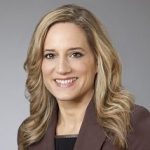Masters Program in Mathematics
The UCF Math Master Program has been offered since Spring 1971 with an Industrial Mathematics track added in Fall 2000 and a Financial Mathematics track added in Fall 2017. It has awarded 369 master degrees. It aims to provide a broad base in mathematics for students interested in mathematical careers. The program supports two distinct tracks: an unnamed track that follows the first two years of the doctoral program in mathematics, and a track in industrial mathematics.
The UCF Math Master program requires 30 credit hours minimum beyond the Bachelor’s degree, including the completion of the core courses and one 2-semester sequence. At least one-half of the program courses in both options must be taken at the 6000 level.
The UCF Math Master program offers two options, thesis and non-thesis. A program of study, including the option, must be established by the end of the second semester and presented to the graduate program director for departmental approval.
Students with thesis option must have a thesis advisor and pursue research which culminates to a master thesis. Students in the program can specialize in many areas of pure and applied mathematics, including Approximation Theory, Applied and Computational Harmonic Analysis, Big Data and Mathematical Statistics, Combinatorics and Graph Theory, Commutative Algebra and Algebraic Geometry, Control and Optimization, Differential and Symplectic Geometry, Differential Equations, Fluid and Plasma Dynamics, Inverse and Ill-posed Problems, Mathematical Biology, Mathematical Finance, Nonlinear Waves and Nonlinear Dynamics, Numerical Analysis, Orthogonal Polynomials, Real and Functional Analysis, Probability and Stochastic Analysis, Tomography and Medical Imaging, Topology, and Wave Propagation.
Students with non-thesis option must pass the qualifying examinations at or above the MS level. Students with non-thesis option are encouraged to find an academic advisor and work on some research problems.

The UCF Math Master program with industrial Mathematics track prepares students to pursue careers in industry by providing them with high quality professional training in branches of mathematics valuable to high-technology industries. This track has three components: training in the necessary mathematics to pursue a career in industrial mathematics, professional training to prepare for the environment of the industrial workplace, and a required experiential component.
Additional information can be found on the Mathematical Science MS graduate catalog webpage, including the financial math track and industrial math track in the UCF graduate catalog, the College of Graduate Studies website, and the graduate program Admission website.

